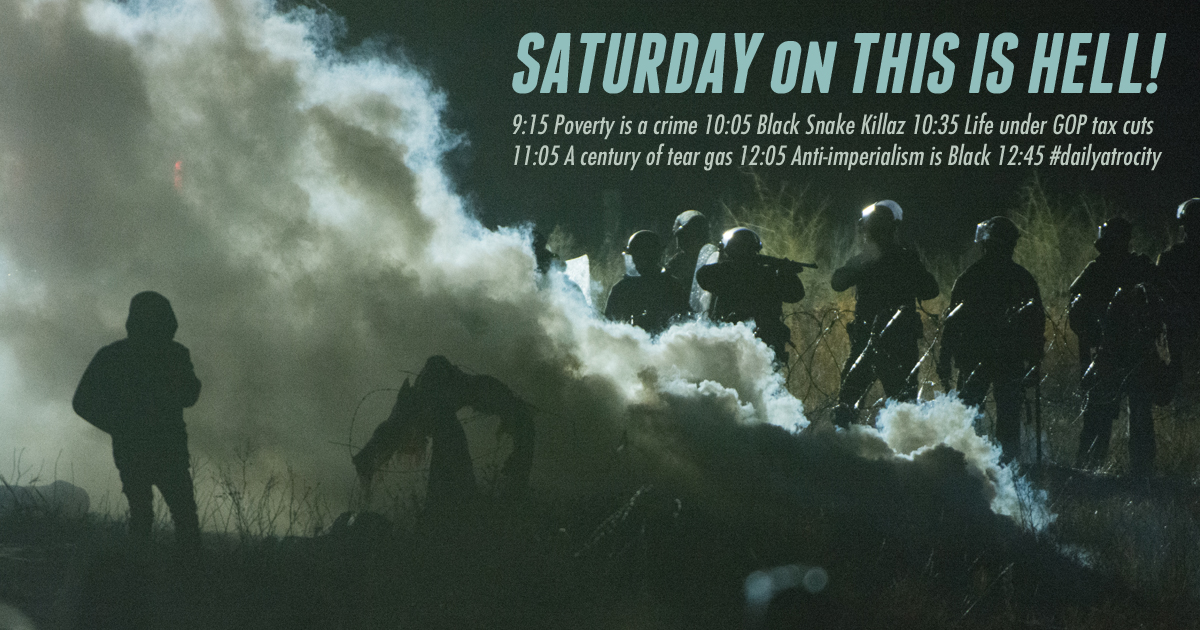Welcome to the Moment of Truth, the thirst that is the drink.
While listening to the Nick Cave and the Bad Seeds record, Murder Ballads, I was not looking for inspirational messages. I was not expecting any. But then the song came on, "Death is not the End," and suddenly a space opened up in my brainheart, or heartbrain, for the idea of the persistence of consciousness after the death of the body, and I got to feeling interested and cheerful. Interested again in life, which had recently become disturbingly empty, and cheered by the quasi-metaphysical thinking the brainheartspace allowed.
Occam's Razor is the idea that the simplest explanation is most likely correct. Writer, musician, and sports philosopher Robert Jacobson coined the term "Bozo's Mallet" to denote asinine misuse of the simplest-explanation theory. Or, it's the doctrine that the stupidest answer is usually the correct one. In any case, either Occam's Razor or Bozo's Mallet tells us the world exists. It sure seems to. Just take a look around. Or, if you're in the dark, grope around. Feel that?
And yet the world also seems not to be there. The present moment is fleeting. Matter and energy transform. All is transient. Your eyes and ears play tricks on you. Time leaves the past behind and moves into an unknown future. Experience is subjective. And when we fall asleep, we seem to enter another world in our dreams.
But the amount of detail reported about the external world is infinite and infinitesimally specific. If it's all an illusion, it seems like overkill. I would've been satisfied with a world that didn't get anymore finely-grained than molecules. If the illusionist wanted to fool me into believing in an external reality, there was really no need to come up with quarks and, for goodness sakes, a particle-wave paradox. Really, I would've been satisfied if the world were made out of pretzel dough. Or balanced on the back of a turtle. Or an infinite stack of turtles. You could've sold me anything.
If all that detail is purely for the sake of those with a desire to continue investigating ever deeper or farther into reality – well, I'm not one of those people. I check in on those people, just to keep up with what they're thinking, but much of it is gibberish. It's definitely wasted on me. Earth, Air, Fire, and Water would've been plenty of mystery. And yet, if the illusionist went to the trouble to make an illusory universe with details for... read more
Listen live from 9AM - 1:00PM Central on WNUR 89.3FM / stream at www.thisishell.com / subscribe to the podcast
9:15 - Journalist Jess Bruder explores the low-wage labor of senior nomads working at the end of retirement.
Jess is author of Nomadland: Surviving America in the Twenty-First Century from W.W. Norton.
10:05 - Live from São Paulo, Brian Mier profiles the resistance movements working and fighting in post-coup Brazil.
Brian's book of interviews, Voices From the Brazilian Left, is available to order now from Brasil Wire.
10:35 - Anthropologist Aaron Neiman connects worker pain to the pre-existing conditions of labor under capitalism.
Aaron wrote the essay A Pain in the Back for The New Inquiry.
11:05 - Writer Sara Wachter-Boettcher finds social inequality coded deep within the devices of Silicon Valley.
Sara is author of Technically Wrong: Sexist Apps, Biased Algorithms, and Other Threats of Toxic Tech fom W.W. Norton.
12:05 - Historian Robin D.G. Kelley finds the future of Black radicalism laid out in the paths of ancestors.
Robin wrote the essay "Winston Whiteside and the Politics of the Possible" for the Verso collection Futures of Black Radicalism.
12:45 - In a Moment of Truth, Jeff Dorchen's imagination is sparked by a Nick Cave song.
Jeff keeping it light for the holidays.
Welcome to the Moment of Truth: the thirst that is the drink.
I want to correct the common misconception that we don't have seasons here in LA. False. We have rain season, fire season, allergy season, and pilot season.
We also have many different kinds of milk. Goat milk, camel milk, almond milk, hemp milk, buttermilk, buffalo milk, cashew milk, turmeric milk, 2% milk, lactose-free milk... an exhaustive list would be exhausting.
I like lists. I like labels. I love to hate-read commercial copy. I've been an avid reader of cereal boxes since I was a wee lad. The cereal box is a rare example these days of literature that is far more commonly read on hard copy than in digital format.
Food labels are deceptively misinformative. They tell you the selective nutritional content of the grub in the container. They give a somewhat fanciful list of ingredients. (I collect synonyms for "sugar.") Labels can even more fancifully describe the essential nature of the food: is it "all natural?" Is it "organic?" You never see food announcing that it's "partially synthetic," "now less delicious," "sprinkled with insect parts," or "made from repurposed latex detritus and shaved lead." We don't look for truths on our food packaging.
Where do we find truths in hard copy? Books! Ever read one of these rustic bastards? They're made of paper and other old-fashioned materials, such as string and glue, cloth, and sometimes leather.
Some books contain hard truths, some easy ones, and some no truths at all, but only lies. Cowboys and seafaring people used to read them, that's how ancient books are.
I'm reading one currently! There are a couple of tricks to it. First, you have to find a comfortable position in which to hold the equipment and gaze at it for minutes at a time. Secondly, you have to open the thing, and hold it open, either on a lectern, or using your human hands, feet, face, or a heavy object such as a brick or a rock. Even another book will do. Even a cereal bowl. The paper and ink inside reveal the thoughts of the person or persons who composed or compiled the contents. It sounds a lot more complicated than it is, and that's one of the few things you can say that about.
Books are also unusual in that they begin in one place and end in another, unlike a Mobius strip, or the universe. In this way books mimic journeys. And, like a journey, they can be bad for your health. You can lose things on the way. Books can cause brain... read more
Chuck picks his 10 favorite books from the 100+ he read for the show this year:
Lauren Elkin
Anna Feigenbaum
Suzy Hansen
Talitha L. LeFlouria
Kate Manne
Angela Nagle
Interview
Yanis Varoufakis
Interview Playlist:
Listen live from 9AM - 1:00PM Central on WNUR 89.3FM / stream at www.thisishell.com / subscribe to the podcast
9:15 - Writer Malcolm Harris examines the short history and dark future of Millennials under capitalism.
Malcolm is author of Kids These Days: Human Capital and the Making of Millennials from Little, Brown and Company.
10:05 - Writer Brianna Rennix outlines a left approach to building a humane immigration policy.
Brianna wrote the article What Would Humane Immigration Policy Look Like? for Current Affairs.
10:35 - Attorney Flint Taylor surveys the state's threat to Black radicals, 48 years after Fred Hampton's murder.
Flint wrote the op-ed On 48th Anniversary of Fred Hampton's Murder, Rampant Surveillance of Black Liberation Movements Continues for Truthout.
11:05 - Journalist Jake Johnston reports on a drug running scheme in the Honduran coup-government.
Jake wrote the article Top U.S.-Backed Honduran Security Minister Is Running Drugs, According to Court Testimony for The Intercept.
11:35 - Writer Amanda Baker examines the gap between scientific terminology and popular understanding.
Amanda wrote the article Hiding Clear Ideas behind Unclear Words for Scientific American.
12:05 - Writer David Roth explores the imperial rot deep in the heart of the NFL's ownership class.
David wrote the article Downward Spiral: A fan’s notes on the decline of the NFL for The Baffler.
12:45 - In a Moment of Truth, Jeff Dorchen reveals the truth behind food labels and the Vietnam War.
Not sure if it's the same truth there, or like different truths for each discrete entity. I'll find out the same time you do.
Welcome to the Moment of Truth: the thirst that is the drink.
In a dreamlike if not nightmarish image, a Croatian war criminal, during his sentencing at The Hague, killed himself by drinking a little bottle of poison. The US Senate passed a tax "deform" bill designed to injure if not destroy a majority of citizens while giving a tax break to private jet owners. And to twist the blade in our angst, President Hemorrhoid Hoover tweeted a trilogy of the British right wing's Islamophobic version of The Protocols of the Elders of Zion.
Each day brings a new travesty. That's the hallmark of the Donald Dump era. There are certainly more important issues to focus on than the daily atrocity he commits against logic and language. But it's all right, sometimes, to examine the daily dung and our consequent feelings of disgust. It can be instructive. It can even bring us together. As a people. A people disgusted.
I don't always wake up late, but even when I mistakenly wake up early, it takes me a while to catch up with the rest of you. Depression and apathy, aggravated by the itchy burning of President Hemorrhoid, weighs me down. Upon waking, I find that my head is encased in a gelatinous cube of despair. On the very rare mornings I start perusing social media especially early, at, say, 5 am, nothing actually registers for the first few hours. I'm like a mature sunflower, head in the shadows, seeds falling out of my heavy face, absorbing nothing. Well, maybe not seeds falling out of my face. Unless they're seeds of incomprehension. But incomprehension isn't a seed-bearing plant. It's a legume. And why out of my face? Why "out" at all?
Leave me alone, it's early.
Living in the Pacific time zone, I get going, if you can call it "going," three hours later than the folks on the East Coast, so they're even farther ahead of me than my fellow Pacific Rimmers. Simply put, in the continental USA, I'm not going to be catching any early worms. By the time I finally come out of the fog and realize I'm on Twitter or Facebook, every news item is long buried under several layers of mockery, parody, and meme-age. But I've become pretty good at digging through the bemusement and bile of others to the inciting incident.
I'm concerned that white people didn't quite get what happened when the Navajo Code Talkers visited Resident Dump in the White Witch Satanic Christmas House. Not that the situation had been parodied to death, but it had... read more
Listen live from 9AM - 1:00PM Central on WNUR 89.3FM / stream at www.thisishell.com / subscribe to the podcast
9:15 - Law professor Peter Edelman explains how poverty became a crime in America.
Peter is author of Not a Crime to Be Poor: The Criminalization of Poverty in America from The New Press.
10:05 - Journalist Niko Georgiades profiles the water protectors on the front lines of the #NoDAPL fight.
Unicorn Riot released a documentary on the Stand Rock / Dakota Access Pilpeline protoests, Black Snake Killaz: A #NoDAPL Story.
10:35 - Economist Dean Baker previews life in our new, broker country under the Republican tax plan.
Dean wrote the op-ed #RichPeopleNeedTaxCuts: The Republican Tax Plan for Truthout.
11:05 - Writer Anna Feigenbaum explores a century of tear gas, in wars foreign and domestic.
Anna is author of Tear Gas: From the Battlefields of WWI to the Streets of Today from Verso Books.
12:05 - Historian Paul Ortiz connects the politics of anti-imperialism to the tradition of Black radicalism.
Paul wrote the essay "Anti-Imperialism as a Way of Life: Emancipatory Internationalism and the Black Radical Tradition in the Americas" in the collection Futures of Black Radicalism from Verso.
12:45 - In a Moment of Truth, Jeff Dorchen logs on and dissects the daily Twitter atrocity.
If you have to @ someone about this, please @jdorchen.








